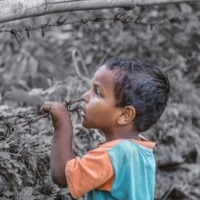Deadline: 13-Aug-2025
The World Food Programme (WFP) has launched a call for the implementation of general food assistance, nutrition, digital and financial inclusion, resilience, and self-reliance activities in the Bidibidi and Lobule refugee settlements and their surrounding host districts in Uganda.
WFP Uganda supports both refugees and host communities by providing life-saving food aid during emergencies and long-term interventions that foster resilience and self-reliance. These efforts align with the Comprehensive Refugee Response Framework and aim to ensure access to nutritious food while promoting gradual independence for affected populations.
This initiative focuses on key sectors including food security through cash or in-kind food assistance, and livelihoods support like community mobilization, microfinance, and self-reliance programs. Nutrition support includes infant and young child feeding, and prevention and treatment of malnutrition. The protection component ensures the safety and dignity of vulnerable groups.
The geographic focus is on Northern Uganda, particularly the Bidibidi and Lobule areas. The expected outcomes include improved food security for refugees and asylum seekers through assistance and nutrition-sensitive social behavior change communication (SBCC). Vulnerable children, pregnant and breastfeeding women, and girls will receive nutrient-rich foods and SBCC for malnutrition prevention.
WFP aims to build the capacity of government institutions and stakeholders to better plan and deliver targeted aid. Refugees and host communities will benefit from productive assets and livelihood support, coordinated through a multi-sectoral system that promotes self-reliance.
Other anticipated results include mindset shifts and social empowerment, higher income through climate-smart agriculture, and enhanced access to financial services via the digitization of Village Savings and Loans Associations (VSLAs). Applicants will be evaluated based on criteria such as accountability to communities, security access, clarity of activities, cost-effectiveness, innovation, local experience, project management skills, and alignment with WFP objectives.
For more information, visit UN Partner Portal.









































